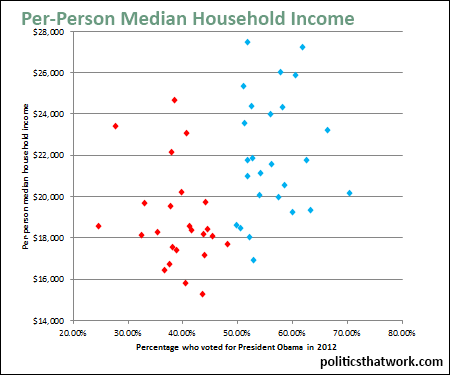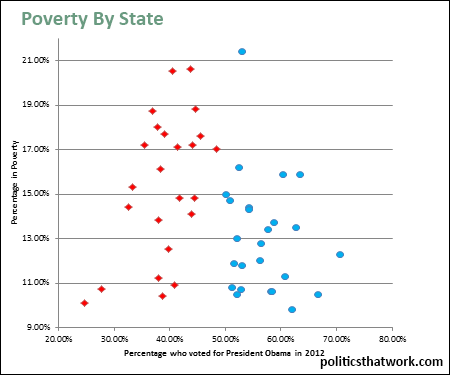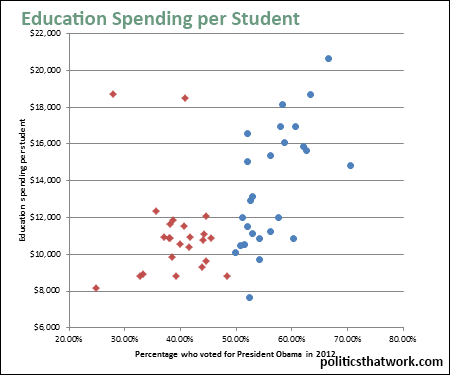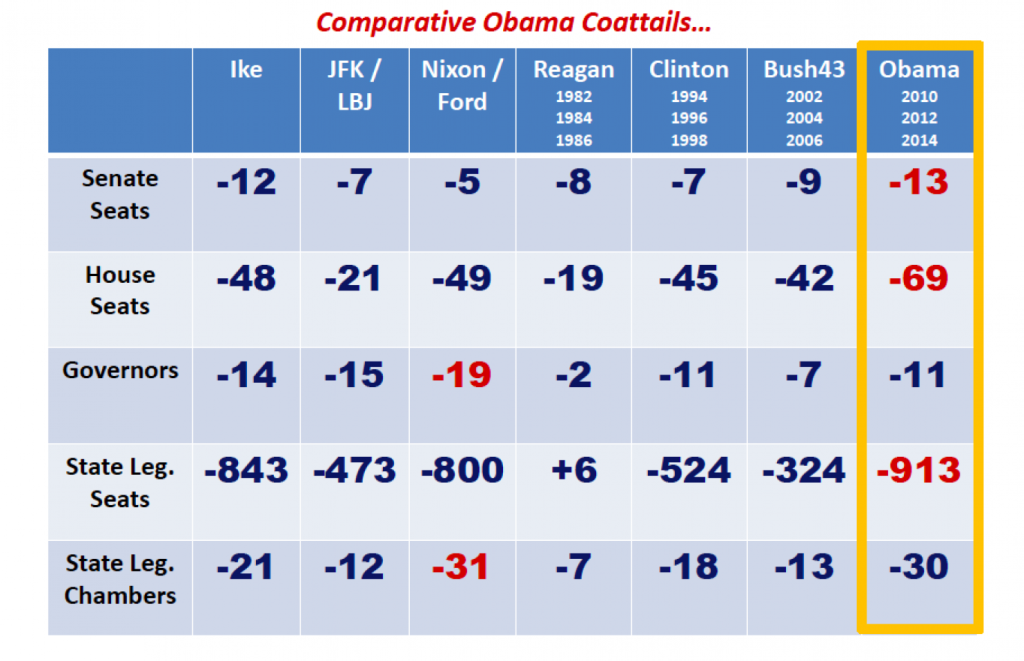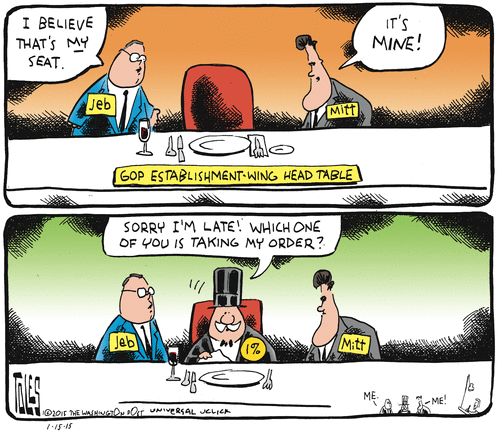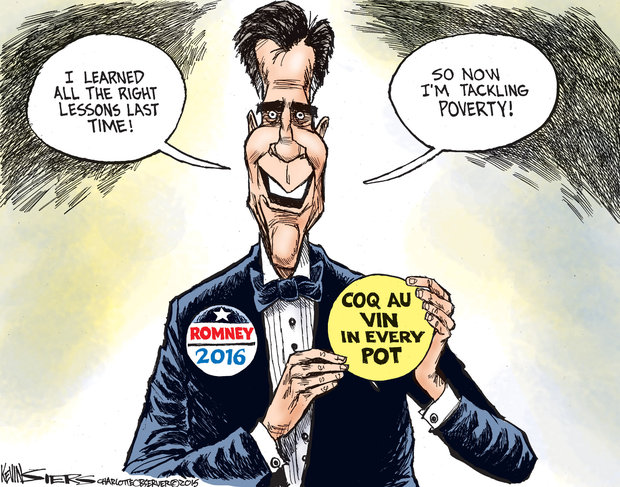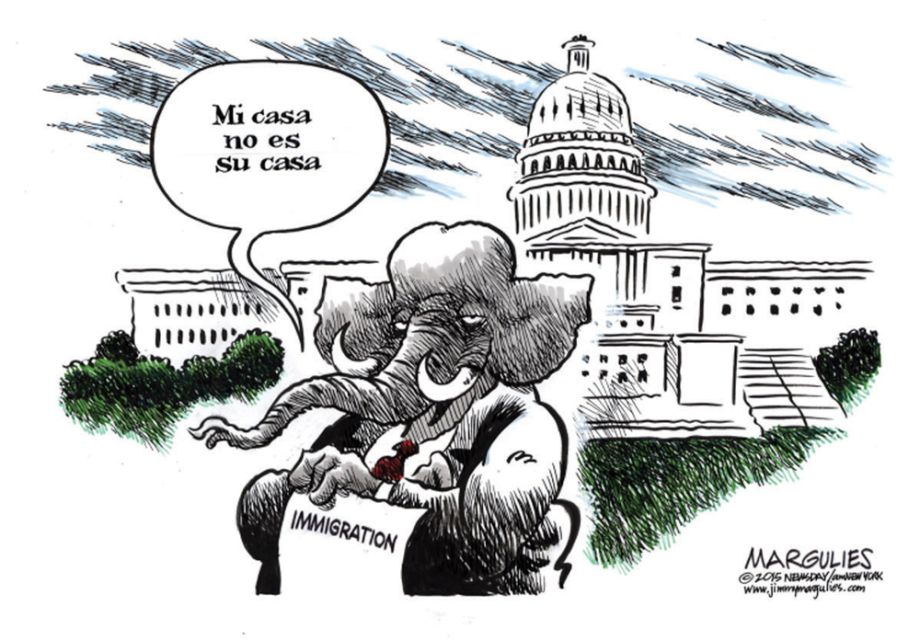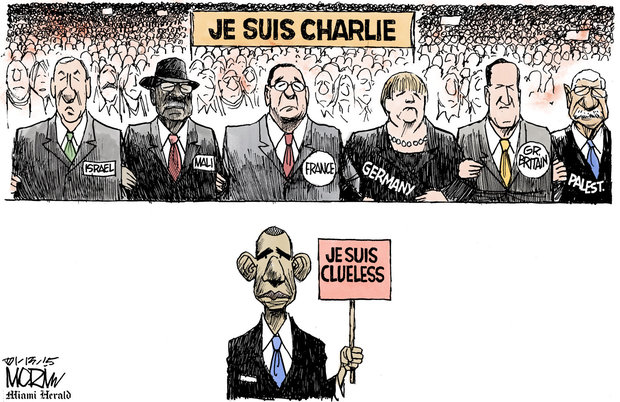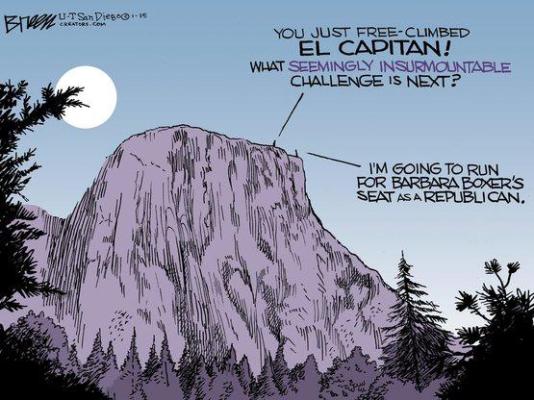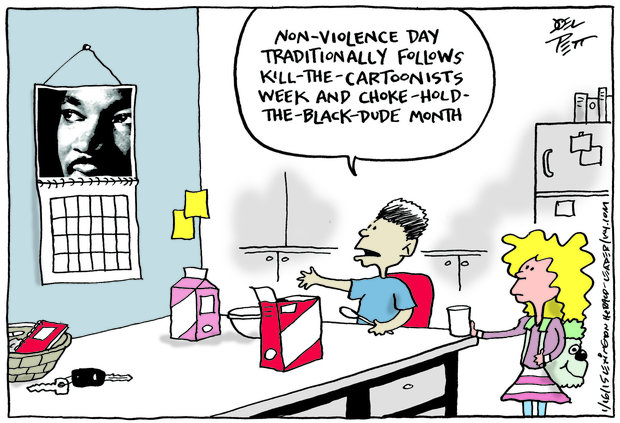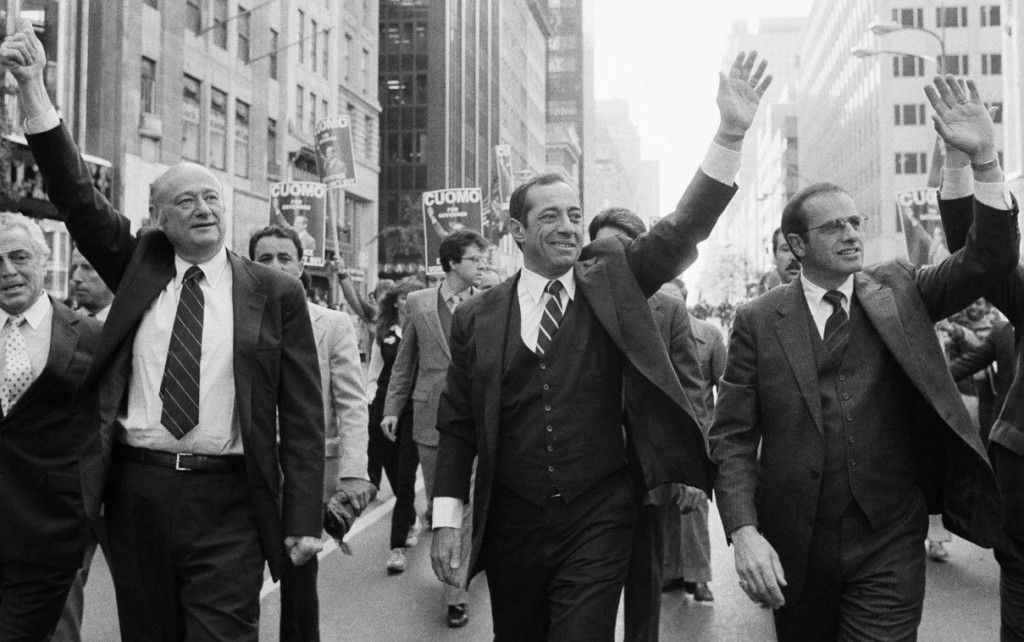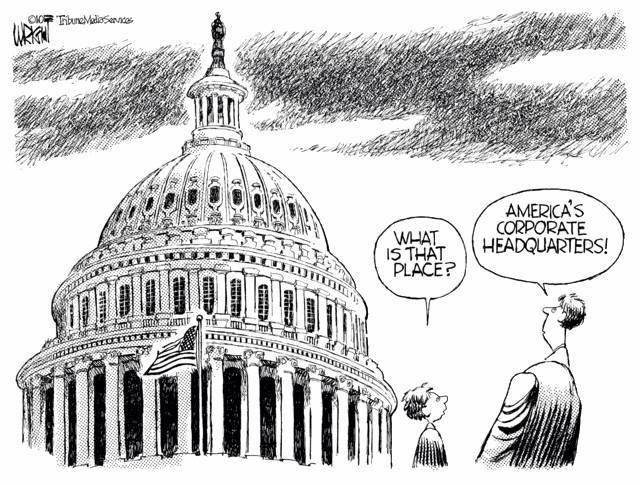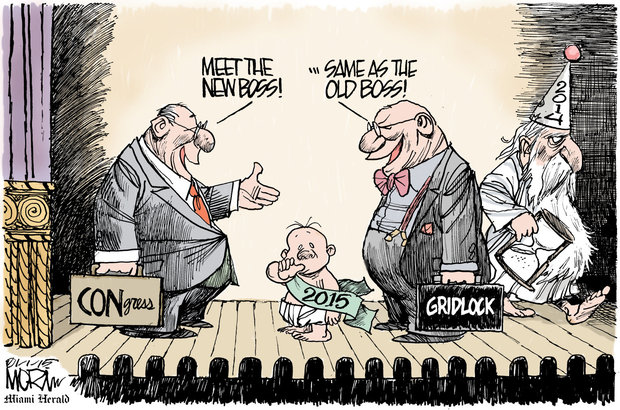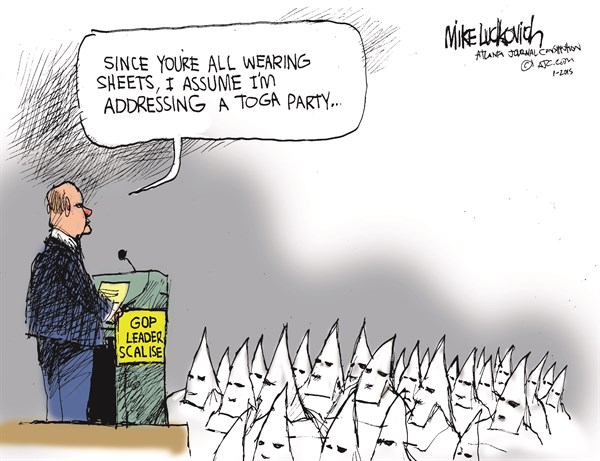Mr. Obama will make the State of the Union (SOTU) speech tonight. Much of what he is likely to outline as his program for 2015 has been leaked, and pundits have focused on the tax cut for the middle class and tax increases for the 1%. Given that the Republicans control both houses of Congress, this is never going to happen, so why now, and not in 2009 and 2010?
On Sunday, the Wrongologist wrote about Mr. Obama’s appalling coattails. Among the reasons his party lost 13 Senate seats, 69 House seats and 11 Governorships since 2010 is that Dems think they can win as “Republican Lite”. In the case of Democrats, they became the “less taste, less filling” brand.
It’s a lot easier to propose these tax policies when there is absolutely no prospect that these policies will ever be enacted. So, the real significance of these proposals will be how it sets up the eventual Democratic nominee for the contest against Bush 3.0, or Romney 3.0, or whoever winds up with the Republican nomination in 2016. But, will the electorate care that the president proposed something that the Republicans laughed out of town over the weekend? Probably not.
Political scientists point out that the 2016 congressional elections will be more favorable to the Democrats than the 2010 or 2014 elections were, because of the higher turnout in the presidential elections and the makeup of Senate seats that will be contested in 2016.
So, why won’t Democrats turn out for off-year elections? Think about it: Voters seem to be perfectly capable of finding their way to the polls in certain years and are motivated enough to take the time to do so. Yet, these same people consistently lose either their motivation or sense of direction, two years later. Democratic pros say that turnout is all about how to “message” better, which for Democrats means how to say the same old things in new ways. But, Democratic candidates, and their messaging have lost credibility, or are no longer relevant to the day-to-day issues of average people. So voting for Democrats is no longer a priority.
Nor is election turnout the only answer. In 2006, Democrats did extremely well with a 37.1% turnout. Yet, Democrats did poorly in 2010 when turnout was 37.8%. Turnout was higher in 2008 than it had been in any Presidential election year since 1968, probably due to the Obama factor. But, turnout in 2002 when Republicans did well, was only slightly off from 2006 when they did badly, at 37.0%.
Strategically, Republicans may not have much left in the potential electorate to motivate, if demographics are now really tilting towards Democrats. Thus, the R’s have no choice but to repress (or suppress) unenthusiastic and unmotivated Democratic voters.
The R’s got a huge assist in 2014 from Democratic candidates that didn’t stand for much, except the meta-message of “we suck less.” Even if a majority of the electorate sort of agrees with that, a certain portion also says, “Yeah, but not enough to care who wins.”
The issue is what strategies will work politically. The bind can be explained simply: to be successful, Democrats must convince the electorate that Washington can and should do things to improve their lives, but the Republicans have enough firepower to ensure that the D’s premise is a loser. With Hillary, Dems won’t beat them badly enough in 2016 to change that.
It’s clear that electing Democrats (usually) leads to better outcomes than electing Republicans. Change came in bunches: in 1933-1945, 1961-1973, 2009-2010. Think about it, in that 35 year period, Dems passed financial regulation, FDIC, SEC, Social Security, Medicare, Civil Rights Act, Equal Opportunity, Voting Rights Act and Obamacare.
If you doubt this, look at the 50 states. Each has its own set of policies. In many cases, states have adhered to a generally consistent policy for decades. So the economic conditions in the states is a strong indicator of the effects those policies. To see whether the economy performs better in red states or blue states, simply look these 2014 statistics for red vs. blue states. The differences in that regard are stark:
Or, you can look at poverty by red vs. blue state:
Or, per student education spending by state:
This may suggest a strategy on the state and local levels, based on: “Why can’t we have the success the blue states have?”
On the federal level, Democrats have not received credit from voters for proposing popular policies that never came to pass. In fact, the entire success of the Republicans in the 2014 elections was predicated on the idea that the president would receive more blame for gridlock and dysfunction in Washington than they would for causing it.
They were correct. And there are zero reasons to believe that the same playbook won’t work again. You can already hear Republicans decrying the “Obama/Clinton failed policies” of the past 8 years.
See what YOU think after the SOTU tonight.

